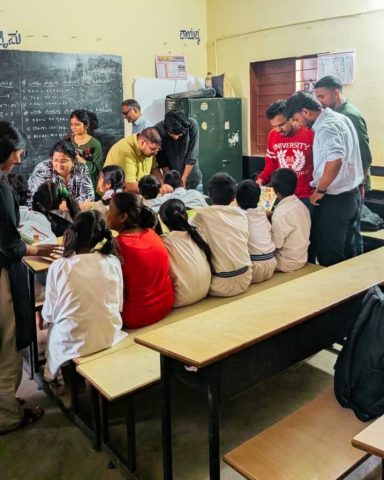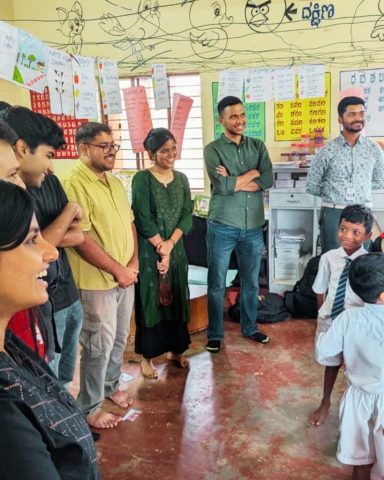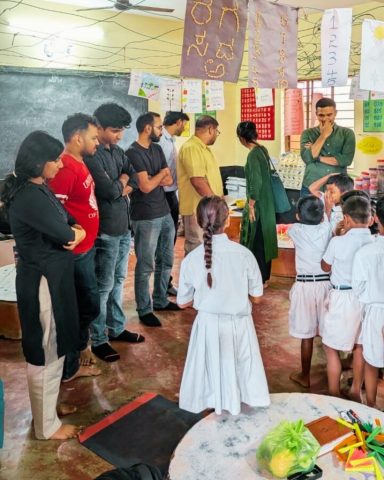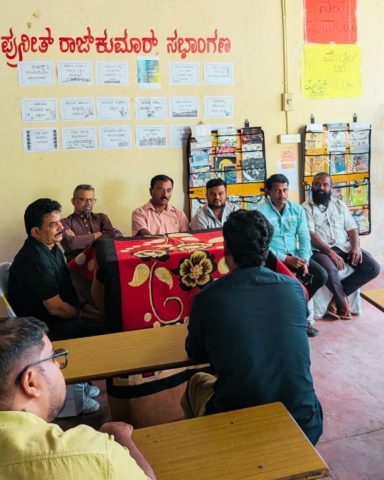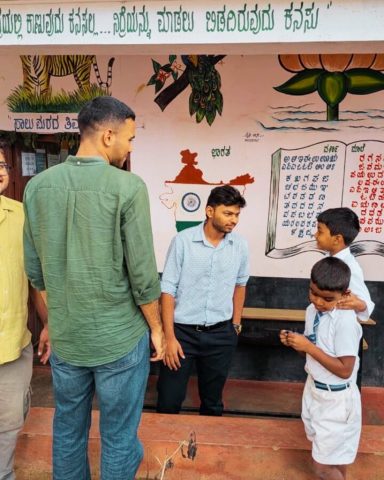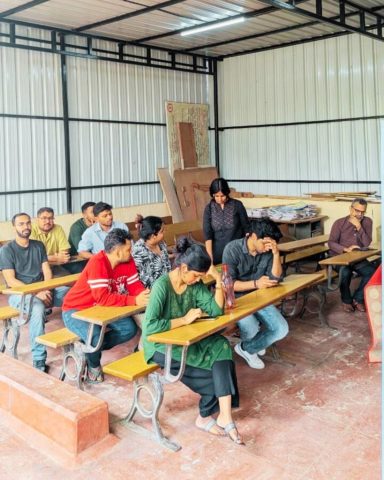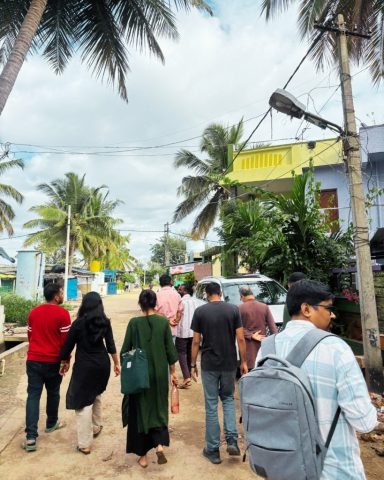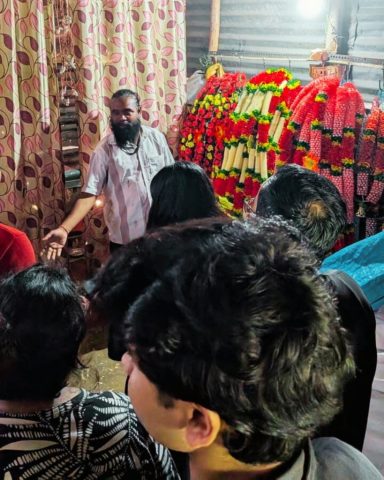Community Engagement and Field Visit at Hakki Pikki Settlement | By Centre for the Study of Social Inclusion (CSSI)
August 20, 2025
 A team of NLS faculty and students of the Master’s Programme in Public Policy (MPP) visited a Hakki Pikki settlement in Bannikuppe Village, Bengaluru, on August 20, 2025, as part of the voluntary outreach initiatives of the MPP programme. The visit aimed to engage with the Hakki Pikki community and understand their socio-economic conditions and explore issues related to inclusion and welfare.
A team of NLS faculty and students of the Master’s Programme in Public Policy (MPP) visited a Hakki Pikki settlement in Bannikuppe Village, Bengaluru, on August 20, 2025, as part of the voluntary outreach initiatives of the MPP programme. The visit aimed to engage with the Hakki Pikki community and understand their socio-economic conditions and explore issues related to inclusion and welfare.
The visit was facilitated by Prof. Sony Pellissery and Dr. R.V. Chandrashekar Ramenahalli of the Centre for the Study of Social Inclusion (CSSI), NLSIU. This initiative is part of CSSI’s larger idea to link classroom learning with field realities and provide students with an opportunity to understand questions of marginalisation, welfare, and social justice in practice.
About the Community
The Hakki Pikki are a Scheduled Tribe and decriminalised community (formerly listed under the Criminal Tribes Act of 1871) who migrated from Northern India. The term “Hakki Pikki” translates to “bird catchers” in Kannada. During the rehabilitation drives of the 1950s and 1960s, the community was relocated from forests to the outskirts of urban areas in Karnataka.
Traditionally the community is known for their migratory livelihoods, traditional healing and trading practices. They are famous for their renowned knowledge of indigenous medicines and herbal products, particularly herbal oils and other Ayurvedic formulations. Some members of the community travel to African and Gulf countries in order to sell these herbal oils. Many families also make artificial garlands and decorations for sale in nearby cities. According to the 2011 Census, their population in Karnataka is 11,892 and they particularly reside in districts such as Davangere, Mysuru, Kolar, Hassan, and Shivmogga.
Reflections from the Visit
The activity was coordinated by second-year MPP students. They were involved in interactive discussions with community members and elected representatives, observations of local livelihood practices, and participated in informal group conversations. The team also spent time at the local primary government school (Classes 1–7) interacting with students and teachers. At present, there are only 30 students in total, and they are taught by three teachers across just three classrooms. The school runs from 10 am to 4 pm with a midday meal at 1 pm.
Nabeel Abdur Rahman, a second-year MPP student from West Bengal joined the visit to better understand how tribal communities navigate education and welfare. Reflecting on the school interaction, he remarked:
“We engaged with children from classes 5–7 who expressed their dreams of becoming doctors or police officers. At first, these seemed like predictable answers. However, discussions with Panchayat members revealed that rampant alcoholism was causing health issues, violence, and instability in the community. The children’s aspirations, therefore, stemmed from these lived experiences.”
Alaka Rajeev, a second-year MPP student from Kerala, motivated by her interest in the sociology of education, shared:
“There were very few children in the school, and teachers were finding it difficult to convince their parents to send their other children as well. One reason being linguistic barrier, that is the language of instruction is Kannada which was different from their mother tongue. This showed how cultural and linguistic gaps intersect with education access.”


